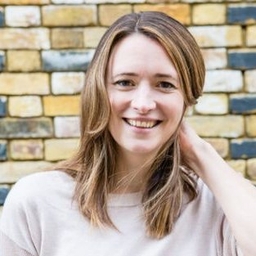
Helen Thomson
Health Journalist at Freelance
Previous: Head of features @newscientist | Author of Unthinkable and This Book Could Fix Your Life | Freelance Journalist and Editor | Open to commissions
Articles
-
1 week ago |
internazionale.it | Helen Thomson
Mentre salgo lungo il ripido sentiero roccioso verso la vetta del monte Yr Wyddfa, conosciuto anche come Snowdon, la vista è spettacolare. Mi fermo per respirare nella fresca aria di montagna, con il suo vago aroma di erica, e per apprezzare il silenzio. Quando riprendo il cammino, tutto ciò che sento è il rumore ritmico degli scarponi contro la roccia. Ma presto il ritmo inconfondibile di All that she wants degli Ace of Base invade la mia consapevolezza.
-
2 weeks ago |
teadus.postimees.ee | Helen Thomson
TeadusNew ScientistTellijaleKas ootad järjekorras või trügid ette? Selgub, et osa inimesi hoiab reeglitest kinni ka siis, kui nende rikkumise eest keegi midagi ei tee ega karista. See on kasulik teadmine ka poliitikutele. Foto: AL BON / PixabayKas sina järgiksid sellist reeglit, mis sulle kahju teeks ja keegi ei saaks teada, et sa seda rikkusid? Mitmed eksperimendid näitavad, et iga neljas inimene teeb seda: järgib reegleid isegi sotsiaalse surve, karistuste ja isikliku kasu puudumisel.
-
2 weeks ago |
newscientist.com | Helen Thomson
Forget facial recognition – there could be a new way to identify you. Researchers have discovered that we all seem to have a “respiratory fingerprint”, a unique way of breathing that could revolutionise how we diagnose and treat various health conditions, from obesity to depression. The breakthrough comes from Timna Soroka at the Weizmann Institute of Science in Israel and her colleagues, who have developed a wearable device that captures the subtle nuances of how we breathe.
-
2 weeks ago |
internazionale.it | Helen Thomson
Sareste disposti a seguire una regola anche se vi danneggiasse e se nessuno verrebbe mai a sapere che l’avete infranta? Da una serie di esperimenti è emerso che una persona su quattro lo è: obbedisce in maniera incondizionata, perfino in assenza di pressioni sociali, sanzioni e tornaconto.
-
3 weeks ago |
newscientist.com | Helen Thomson
Would you follow a rule, even if doing so harms you and no one would know if you broke it? A series of experiments suggests that 1 in 4 people do exactly that: obey rules unconditionally, even in the absence of social pressure, punishment and personal gain. The results challenge traditional economic theories, which assume that rule-following is driven largely by extrinsic incentives, and could reshape how we design new laws.
Try JournoFinder For Free
Search and contact over 1M+ journalist profiles, browse 100M+ articles, and unlock powerful PR tools.
Start Your 7-Day Free Trial →X (formerly Twitter)
- Followers
- 4K
- Tweets
- 3K
- DMs Open
- Yes

Another massively underserved, underappreciated, underfunded area of women's health: #pmdd. My new feature for @newscientist explores people's experience of the condition and the new ideas around what may be causing their pain: https://t.co/u4XvkCG0WG

Looking forward to the @WHOOP announcement - looks like they've updated their app website prematurely though? Whoop 5 incoming...

New neuroscience column alert! 📢 My first column for @newscientist all about how to measure your brain age - and reverse it: https://t.co/G0KFDpAM31
